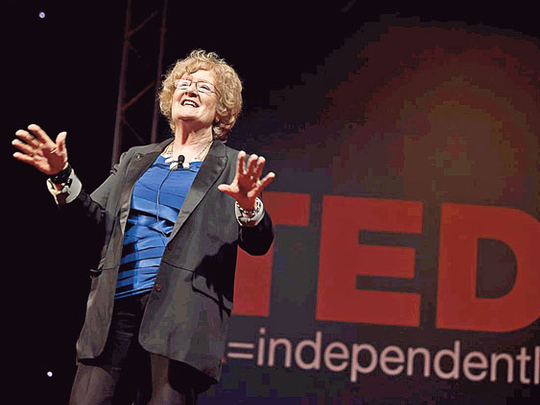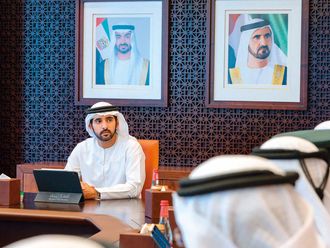
Dubai: English is taking over the world, says English teacher Patricia Ryan Abu Wardeh. And its status as a global language comes at the expense of other languages, she argues.
After 30 years of teaching her native language in the Gulf, Abu Wardeh has come to the conclusion that while English is an important language, its status as a global language is overshadowing other languages, including Arabic.
These sentiments have built up over the years she has been teaching, but she has never made them public until given the opportunity by Technology, Entertainment, Design's, (TED) Dubai affiliate, TEDxDubai.
Abu Wardeh, who works at a university in the UAE, presented her ideas at a Dubai TEDx event. Her presentation is one of the few such talks in Dubai that has been posted on the global TED website.
Her views gave way to a debate. Most people welcomed them but there was some strong opposition.
"The idea evolved over several years of teaching English and doing specialised assessments. I've seen so much change in that it has become an absolute must to have a high standard of general English to be able to enter any decent university," she said.
As she cited in her talk, the number of languages in the world is expected to fall from 6,000 today to 600 in 90 years. She attributes this to the dominant status of English.
Testing programme
She singled out English testing programmes for denying students from non-English speaking backgrounds the opportunity to study at the best universities in the world, which happen to be in English-speaking countries.
"Who am I to say to this [non-English speaker]: thou shalt not continue on this path. Go back and try again," she said, adding that she once worked for such a testing programme but decided to quit for ethical reasons.
It horrifies her that English teachers are allowed to make doctor-like decisions that can determine the fate of a student's career. "It's ridiculous," she says.
A system in which an English teacher can have the authority to turn down a "potentially brilliant" physicist, is deeply flawed, she notes. "It's a very expensive process anyway, so you already dismiss two-thirds of the world's population."
While the testing entities say they are non-profit-making, Abu Wardeh claims language testing is nevertheless an industry.
"They are making a lot of money for a lot of people," she said. A global language that everyone can speak would be nice, she says, but the language is likely to be that of dominant powers and cultures, and will come at the expense of some of the endangered languages of the world.
This trend towards English at the expense of native languages is particularly worrying in the UAE. Abu Wardeh says she regularly asks her Emirati students what language they speak at home, and is often surprised to learn that it is English.
"These people will speak to their own children in English. It only takes one generation [to lose a language]," she says.
No real gain
In other instances, she has found English teachers telling parents to speak to their children in English at home. Some of those parents are therefore forced to speak to their children in the broken English they know, resulting in a loss in Arabic skills and no real gain in English skills.
Dubai is exceptional in terms of the weakening status of Arabic in homes, she says, attributing the trend to the demographic make-up of the city.
She places some of the responsibility on government authorities too. Most of the higher education institutions in the UAE use English as a language of instruction, which has led some to complain about the disappearance of Arabic from higher education.
"It's purely pragmatic [to switch to English in the region] because they want to get on in the world and be global; I see that, but you shouldn't lose what you've got," she said.
Abu Wardeh is one of the few people who spoke in Dubai and is featured on the TED website.
Others include her son Jameel, who brought the Axis of Evil comedy tour to Middle Eastern television screens, and Naif Al Mutawa, the Kuwaiti creator of the Islamic inspired The 99 comic book series that has now developed into an animated television series. Both Al Mutawa and the younger Abu Wardeh debuted with TED talks in Dubai.












